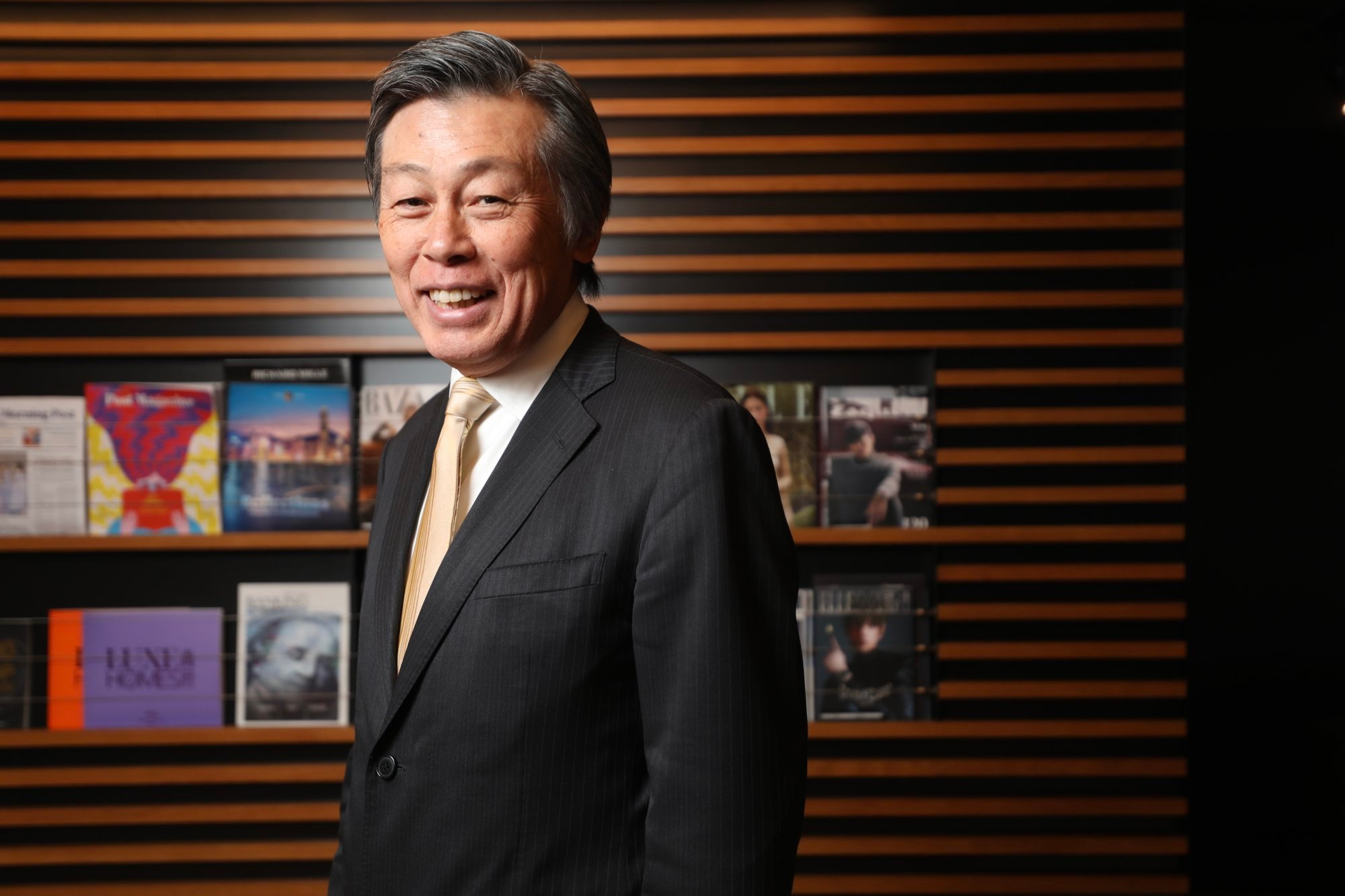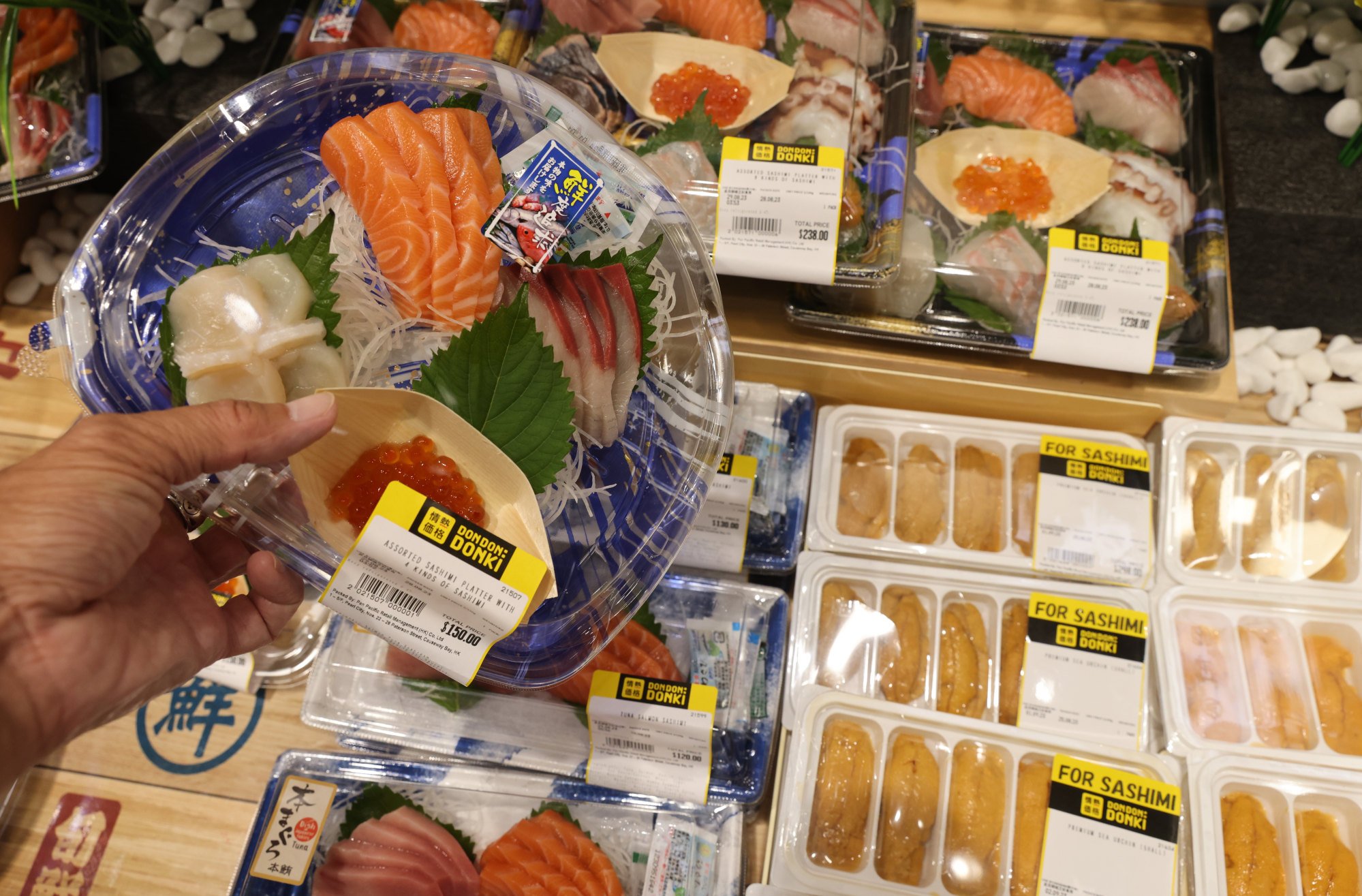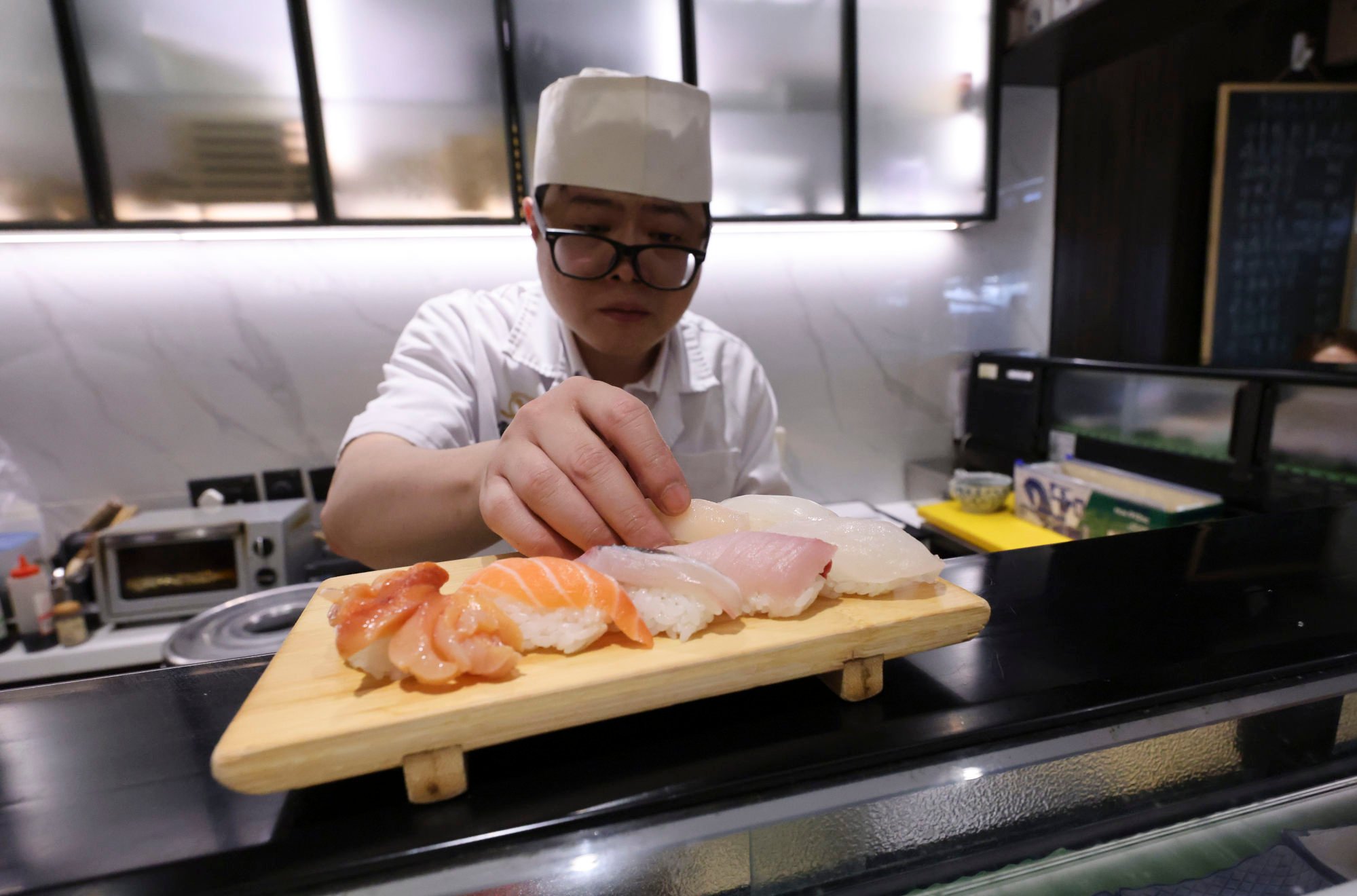Hong Kong should end its ban on Japanese seafood imports as the Fukushima nuclear waste water discharge had not caused contamination and doing so will show it can make decisions separately from mainland China under “one country, two systems”, Japan’s top diplomat in the city has said.
In an exclusive interview with the Post, Japanese Consul General Kenichi Okada said the city had already taken a different approach from the mainland by applying a more narrow ban on only 10 prefectures.
“Mainland China banned all seafood imports from Japan, while Hong Kong banned imports from only 10 prefectures,” he said. “[This] already shows a stark contrast between the mainland and Hong Kong.”
Do you have questions about the biggest topics and trends from around the world? Get the answers with SCMP Knowledge, our new platform of curated content with explainers, FAQs, analyses and infographics brought to you by our award-winning team.

The consul general said he believed the city could “continue to show one country, two systems in various manners”.
“For example, if Hong Kong can lift the ban earlier than mainland China, Hong Kong can showcase the beautiful merits of one country, two systems in front of Japan,” he said.
The governing principle guarantees Hong Kong a high degree of autonomy for 50 years after reunification, and is stipulated in the Basic Law, the city’s mini-constitution.
Japanese consulate in Hong Kong urges end to ban on seafood imports
In August, Japan began discharging into the Pacific Ocean some of the 1.34 million tonnes of treated nuclear waste water that had collected since a tsunami crippled the Fukushima Daiichi nuclear plant in 2011.
The waste water is filtered through a process known as ALPS – advanced liquid processing system – which is approved by the International Atomic Energy Agency, to remove most radioactive elements.
The decision prompted the Hong Kong government to ban aquatic products from 10 prefectures: Tokyo, Fukushima, Chiba, Tochigi, Ibaraki, Gunma, Miyagi, Niigata, Nagano and Saitama.
The mainland decided to ban Japanese sea products from all prefectures.
Since the process started on August 24, the plant has released 23,400 tonnes of treated waste water in three rounds, with the fourth scheduled to begin in late February.

In 2022, the mainland and Hong Kong were the largest and second-largest markets for Japanese seafood, accounting for 87.1 billion yen (US$611.8 million) and 75.5 billion yen worth of Japan’s seafood exports, respectively.
Okada said the exports had dropped sharply since the bans were introduced.
According to data from Japan’s Ministry of Agriculture, Forestry and Fisheries, the value of marine exports from the country to the city in October fell by 16.1 per cent year-on-year to 5.9 billion yen, down from 7 billion yen last year.
Export values to the mainland in the same period plummeted from 8.6 billion yen last year to 1.4 billion yen, an 83.8 per cent decrease year on year.
The ban also caused Hong Kong to overtake the mainland as Japan’s top seafood export destination, according to Okada.
No room to ease Hong Kong’s ban on Japanese seafood, environment chief says
Secretary for Environment and Ecology Tse Chin-wan earlier said the government had taken a conservative approach towards the ban as the discharge was unprecedented and difficult to monitor.
The city has been testing seafood imports, local fishery products and seawater samples since the discharge. So far, all tests by the centre have been satisfactory.
Industry leaders have said almost a third of Hong Kong’s 1,400 Japanese restaurants have shut their doors permanently this year, with high-end omakase establishments offering top-quality sushi being hit the hardest.
The sluggish recovery in the city’s tourism industry, a weak yen and the seafood ban are some of the factors behind their closure, according to restaurateurs.
Okada lamented the seafood ban’s impact on the restaurants, some of which closed after operating for more than a decade.

“I am afraid by Lunar New Year, more Japanese restaurants will not sustain their operations or give bonuses to their staff as per tradition,” he said.
The consul general described “acute heartache” he felt for the restaurants that had “serviced Hongkongers for so many years”.
Quoting a call by G7 leaders in October for the immediate scrapping of the import bans, he urged the city to drop the measures.
Hong Kong’s Japanese seafood ban sees eateries flounder amid customer fears
“We have a lot of conversations and meetings between the two governments on various levels,” Okada said. “The Japanese government monitors the seawater and seafood, and so does the Hong Kong government, with imports from Japan. With so much data accumulated, none showed any problems.”
He added that the Japanese government would continue providing information and scientific evidence to its Hong Kong counterparts “as faithfully and transparently as possible”.
“I hope the Hong Kong government will make the right decision at the right time, so Japan and Hong Kong can move on to the next stage where we can cooperate on many, many issues,” he said.
More from South China Morning Post:
- It’s cheaper in Tokyo: Hong Kong’s Japanese restaurants shut as patrons take off for holidays, sushi and omakase feasts
- Hong Kong’s environment chief says Japanese seafood ban won’t be lifted any time soon, despite lobbying efforts by country’s consul general
- Top Japanese diplomat in Hong Kong urges end to ban on seafood imports from country after G7 nations say Fukushima restrictions should be axed
For the latest news from the South China Morning Post download our mobile app. Copyright 2023.





